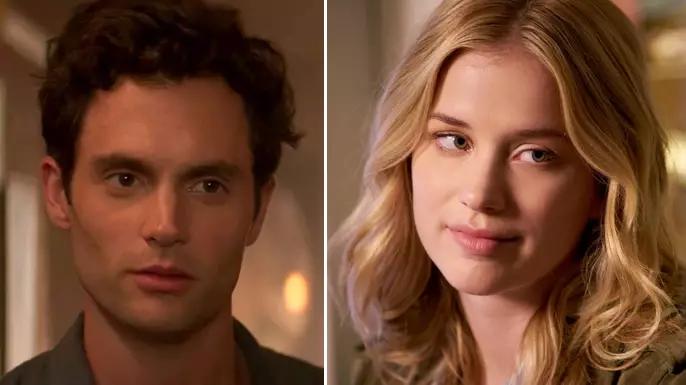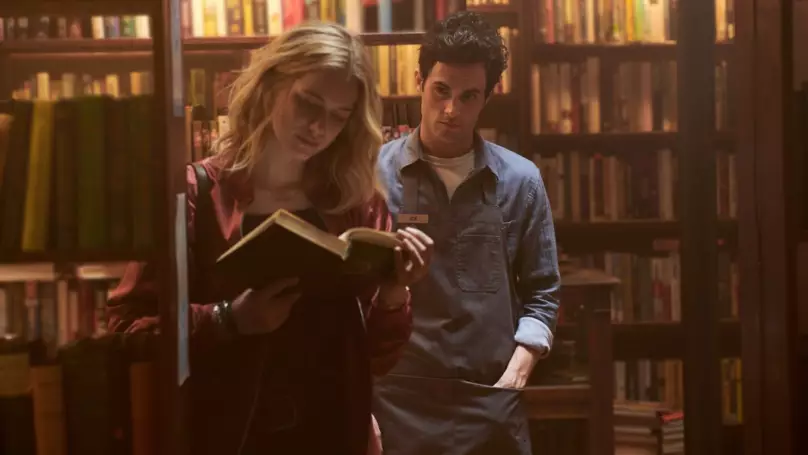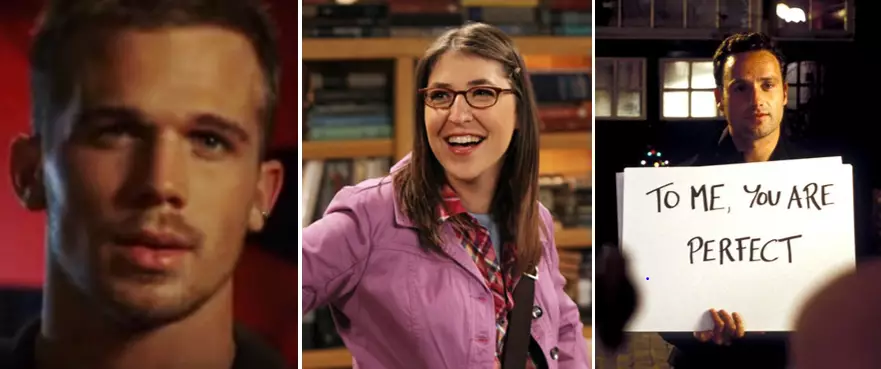
Words by Emily Reynolds
Netflix's newest TV show, You, has made a pretty big splash. By Wednesday 23rd January, the show is expected to have been watched by 40 million subscribers - not insignificant.
The premise is simple. The show follows Joe, a handsome bookseller played by Gossip Girl's Penn Badgley, as he tries, and eventually succeeds, to woo aspiring writer Beck. So far, so generic: a bookshop meet-cute between two slightly nervous but absurdly good looking people is hardly the most original conceit in the world.
But, of course, there's a twist: Joe's a stalker. Using the name on Beck's credit card, he tracks her down on social media and finds out where she lives. He watches her through the window (a warning to anyone who lives in a ground floor flat and masturbates near the window: get curtains). He follows her around New York, steals her phone, reads her messages, and - spoiler alert - ends up killing her ex-boyfriend and best friend. Less average rom-com stuff, then.
Advert
And the show's made headlines for the way it plays with the 'charming obsessive' boyfriend trope. Just this week, Strangers Things star Millie Bobby Brown took to Instagram stories to defend Joe, saying "He's not creepy: he's in love with her".
She wasn't alone, either: plenty of my friends told me how dreamy they thought Joe was, even after they knew he was a stalker, and I have to admit that I didn't totally object to the idea, either. Badgley has had to respond to fans to remind them that Joe is, in actual fact, a literal murderer, with fans tweeting him variations on "I love you", "will you marry me" and, in some cases, "kidnap me". Yes, it's ridiculous and yes, it's hyperbolic. But it's not that unusual.
A few weeks ago, a friend and I started talking about The OC. It turns out we'd both had early sexual awakenings from the show - me in 2019-soft-boy-prototype Seth Cohen and wild child Alex Kelly, him in a character he could actually only dimly remember as "the guy who took Marissa hostage". The character was clearly unhinged, but it hadn't put us off: "Imagine someone liking you enough to keep you hostage, though," I replied.
Advert
It was a flippant remark, and at the time I didn't think much of it. But later, watching Netflix's latest headline series You, I realised that there might be more to it.
By all accounts, Joe should be a villain: we should hate him. But we don't. The show comes from his perspective: we hear his internal monologue, his reasoning for doing what he does.

And even as we watch him steal Beck's phone so he can monitor her conversations, watch her movements from outside her window and even take her underwear, many fans were still left cooing over his dedication rather than freaked out by his stalking.
Advert
Much of what Joe does is positioned as romantic - why else would he follow her around, go out of his way to do things for her, anxiously read messages about himself on her phone, if he didn't really love her?
This is exactly what makes You so compelling: it puts forth, in bleak and blatant terms, many of the incredibly messed up ideas we have about what it means to love and be loved - and does it so well that thousands of viewers truly were duped by his charm.
But once you see it, it's everywhere: in The OC, with a character who kidnaps someone because they claim to love them. In The Big Bang Theory, where a female character explains that her boyfriend "slowly wore [her] down". In Love, Actually, with a frankly deranged subplot involving Keira Knightley being covertly filmed on her wedding day and treated to some equally deranged cue cards outside her front door.

It's there in the idea that turning up unannounced at someone's workplace with flowers, in standing outside their window with a boombox or maybe even looking at the texts on their phone is not only normal but also romantic. Remember that guy in Bristol who played a public piano every day in an attempt to win back his ex? Just another example of someone failing to take no for an answer and still being lauded for their romanticism.
Advert
In showing us Joe's obsession with Beck, and the things he's willing to do to get her, You underlines exactly what we get wrong about romantic love. In reality, love should allow you to be free with someone: to be part of their life, yes, but also to be independent and let them be independent too. It isn't to possess them, to cling to them, to refuse to take no for an answer; it isn't to trick or harangue them into a relationship with you, no matter what so-called 'romantic' stories say.
Joe smashing up the teeth of Beck's ex lover might seem absurd, and it is. But, in the end, it's only the extreme logical conclusion of plenty of ideas we accept as straightforwardly romantic - and that's what makes the show so compelling.
Featured Image Credit: NetflixTopics: You, TV News, TV Entertainment, Netflix